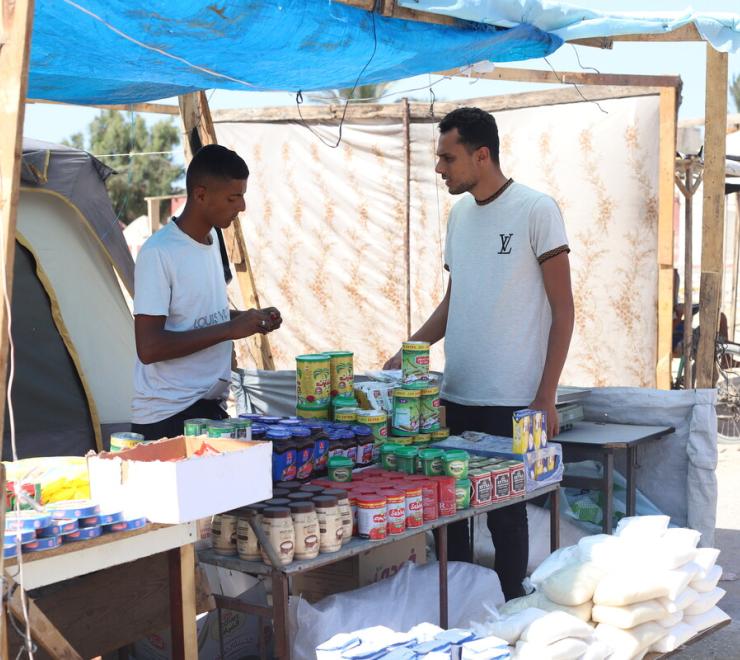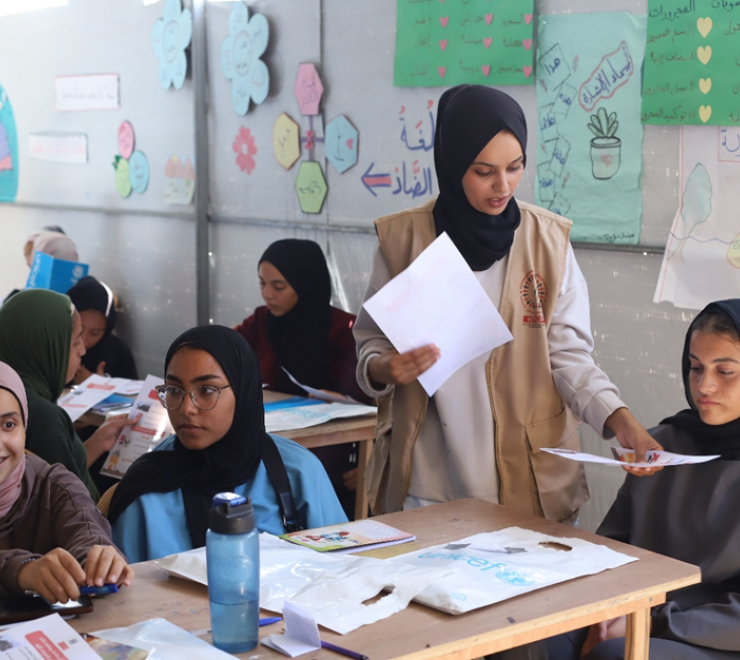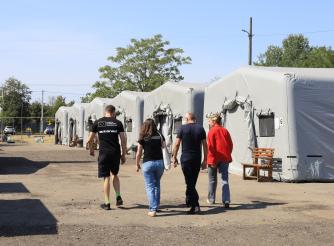The Palestinian youth network shielding Gaza from unexploded ordnances - “People who do not lose their lives or body parts [in the war], might lose their lives or body parts while playing near them.”

More than a year into the conflict, the Israeli military’s intense and extensive bombing campaign has left Gaza littered with an estimated 37 million tonnes of debris. This devastation, coupled with countless unexploded ordnances still lying beneath the rubble, continues to pose a severe threat to life and limb, with demining campaigns in the Gaza strip estimated to take 14 years.
As Palestinians in Gaza have been forcibly displaced numerous times over the past year – and with many attempting to return to their homes in southern Gaza – the presence of unexploded ordnance will continue to pose a deadly threat for years to come. Experts estimate that around 10% of the explosives dropped on Gaza - approximately 7,000 tons - remain unexploded, posing a deadly threat to Palestinians as they return to the rubble of their destroyed homes.
Members of the Humanitarian Youth Group, supported by ActionAid, are at the forefront of humanitarian efforts in Gaza, focusing on raising residents' awareness about the dangers of unexploded ordnance. Khalid and Walaa are part of this group and have conducted risk education sessions where they identified different types of unexploded ordnances, explained their risks, and taught protection methods. Other topics included recognising warning signs, practicing safe behavior, and handling emergency situations.
Youth Network Group members provide leaflets helping communities to spot and recognise unexploded ordance. Photo credit: Wattan Media Network/ActionAid
30-year-old Khalid from southern Gaza has been forcibly displaced multiple times by the Israeli military attacks on Gaza over the past year.
“I experienced the same conditions that other [Palestinians and their families] have faced. We lived through one displacement after the other. This has negatively affected everyone’s lives. Everyone in the Gaza Strip, and even outside of it, knows that displacement is one of the most difficult parts of the war because of the pain and suffering that people endure.
The main reason for joining [the Humanitarian Youth Group] was my belief, alongside my colleagues, in the importance of having young people within decision-making positions in the humanitarian sector. It is no secret that young people play a vital role in any development process in all societies. We believe in the genuine and effective role young people play during crises, disasters, or periods of war.”
[One of our] initiatives aims to improve the psychological well-being of children in shelters and displacement camps. Young people are the backbone of any society. They are an integral part of the system in any country throughout the world.
“Doing work that serves your community brings you comfort, and that is a feeling I share with my colleagues…We each face our own issues and obstacles. What’s important is how you overcome these obstacles and how you improve based on the lessons you learned.’
‘We hope we leave a mark and make a difference in every aspect. We hope to achieve our noble goal to integrate young people into decision-making roles and keep them involved in humanitarian work.”
Wala’a, another member of the Humanitarian Youth Group, said:
“Raising awareness about unexploded ordnances is extremely important in the Gaza Strip where there is no safe place and indiscriminate bombing everywhere. People who do not lose their lives or body parts [in the war], might lose their lives or body parts while playing near or touching unexploded ordnances.
Gaza is now an area full of rubble, bombing and unexploded ordnances and rockets, left by the Israeli [military] in the areas and places that it withdrew from. For this reason, these workshops are needed to raise awareness in the community and among children particularly, because they have the curiosity to explore everything. It is very important to conduct and organise sessions to raise their awareness about unexploded ordnances and save their lives [through] the practices that should be followed when they see those materials in Gaza.”
The presence of these deadly munitions poses a grave threat to civilian safety and hinders reconstruction efforts. Urgent international assistance is needed to mitigate this danger and support demining operations even as the brutal war in Gaza continues.




